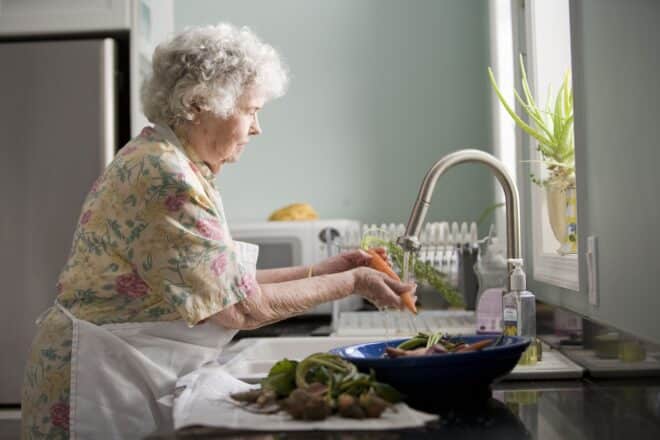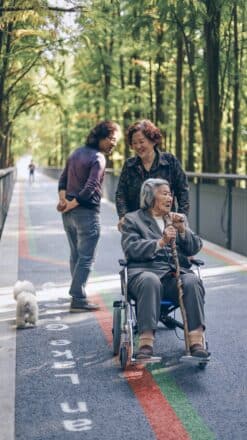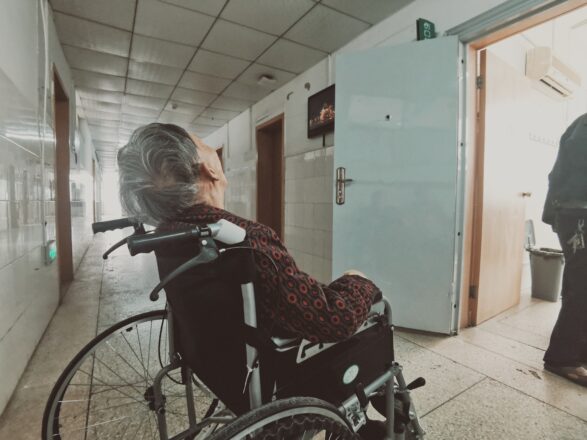In the informative piece titled “Promoting Independence: Understanding and Addressing elderly parents’ concerns,” you’ll find an in-depth discussion about ways to approach the common yet delicate challenge faced by many grown children – how to offer assistance to aging parents who resist accepting help. Using insight from a Penn State University study, this article presents strategies such as comprehending their anxieties often triggered by fear of losing freedom, acknowledging the tasks your parents can still manage to uphold their sense of independence, and addressing safety issues with calm persistence. Additional tips include creating a network of support involving medical professionals and close community connections, persuading your parents to accept assistance for your peace of mind, and ensuring your stress is managed efficiently while addressing these concerns. You’ll also read about the importance of involving your elderly parents in planning their future care tactfully, engaging in ways that bolster familial bonds.

Understanding Elderly Parents’ Fears and Concerns
Understanding your elderly parents’ concerns and fears is a crucial starting point. It might be challenging sometimes, especially when they refuse to accept help. Behind this refusal, perhaps, is a strong desire for independence and a fear of losing it. As a helper and caregiver for your elderly parent, try to uncover the root fears that make them resist help.
Identifying Common Fears Among the Elderly
A broad range of fears is common among the elderly, and understanding these fears can provide better perspectives to address their concerns. Common fears can range from anxieties about health or finances to fears of loneliness or being a burden to their children.
The Impact of Potential Loss of Independence
The fear of losing independence can have a profound impact on elderly parents. For individuals who have lived independently for most of their lives, the thought of relying on others for basic needs can be crushing, leading to strong resistance to accept help.
Understanding Elderly Parents’ Depression and Anxiety
Your elderly parents might not necessarily be suffering from depression or anxiety. However, if you notice signs of persistent sadness, worry, or lack of interest in activities they usually enjoy, it might be time to gently address the issue.
Evaluating the Current Situation
The next step is to evaluate your parents’ current situation. This involves an honest assessment of their abilities and needs, bearing in mind that promoting their independence is the goal.
Assessing What Parents Can Still Do
Instead of focusing only on what your elderly parents cannot do, pay attention to what they can still do. This shifts the perspective from their limitations to their capabilities, helping to maintain their dignity and confidence.
Promoting Parents’ Sense of Independence
Encourage your parents to keep doing the tasks they can handle safely. This can range from personal grooming to some house chores, from preparing meals to taking a walk. This promotes their sense of independence and purpose.
Tips for Non-Intrusive Evaluation of Elderly Parents
In this evaluation, ensure you are being respectful and not invasive. Gentle observation and offering help subtly often works better than direct confrontation. For instance, instead of insisting that they need help, ask how you can make tasks easier for them.
Preserving Respect and Dignity in Conversation
Communication is a significant aspect of offering help. Talking to your parents as an authoritative figure might not be productive. Instead, engage them as adults with respect and dignity.
Treating Parents as Adults
Always remember your parents are adults who have raised children and have seen more life than you. They deserve to be treated with the same respect they offered you while growing up.
Avoiding Authoritative Behaviour
Try to avoid coming off as controlling or patronizing, as this often has a counterproductive effect. Instead, be patient, understanding, and supportive.
Techniques for Productive Dialogues with Elderly Parents
To foster productive conversations, be open, honest, and come from a place of love. Consistently assure them that your primary concern is their safety and well-being.
Prioritizing Safety-Related Issues
Safety becomes a prime concern when dealing with elderly parents who refuse help. Whether it’s potential falls or medical emergencies, safety issues need to be addressed without causing fear or unease.
Identifying Critical Safety Concerns for the Elderly
identify potential safety risks in their home environment and lifestyle, such as clutter in pathways, poorly lit areas, or inappropriate self-medication.
Maintaining Calmness and Persistence in Communication
To address these concerns, maintain calmness and persistence in communication. Repeatedly express your concerns about their safety in a sensible and caring manner.
Finding Suitable Solutions for Safety Issues
Collaborate with your parents to find effective yet non-intrusive solutions. It might include hiring a professional for home safety assessment or installing assistive devices.
Dealing with Uncontrollable Situations
There will always be situations that you cannot control, and recognizing this is vital to remain stress-free.
Recognizing and Accepting Uncontrollable Scenarios
Accepting that your parents might make decisions you disagree with is an important part of this process. They have the right to make decisions about their life, and sometimes the best you can do is let them be and remain supportive.
Strategies for Mitigating Stress
Managing stress is crucial for you as a caregiver. Practice self-care, seek professional help if needed, and connect with peer support groups. Engage in activities that you enjoy and that can offer momentary breaks from caregiving responsibilities.
Respecting Parents’ Decisions Even in Disagreement
Respecting your parents’ decisions, even when you disagree, shows that you acknowledge their autonomy. While it can be hard, especially when you worry about their safety, it’s important for their sense of dignity and independence.
Creating a Supportive System
Don’t try to do everything alone. Build a strong support network for your elderly parents.
Role of Doctors, Neighbors, and Religious Leaders in Elderly Care
In addition to doctors and healthcare providers, neighbors and religious leaders can provide a different perspective and additional support to your parents. Establish good relationships with these people who often have more regular contact with your parents.
Creating a Diverse Support Base for Parents
Expand the support base to include various caregivers. Each person in this network can contribute differently to meet your parents’ physical, emotional, and social needs.
Encouraging Wider Social Interaction for Elderly Parents
Encourage your parents to maintain active social lives. Joining clubs or participating in community activities can provide them with a sense of belonging and improve their mental and emotional well-being.

Leveraging Emotional Appeal
Sometimes, a heartfelt plea can have more effect than a logical argument.
Asking Parents to Accept Help for Their Children’s Peace of Mind
Initiate honest conversations about how their refusal to accept help impacts you. They may be more willing to accept help if they understand it would provide you peace of mind.
Approaches in Changing Elderly Parents’ Behavior
Changing behavior takes time and patience. Consistently communicating your concerns and making them feel loved and valued may lead to slow but sure acceptance of help.
Strengthening Bonds Through Sensitive Communication
Instead of pushing for changes, focus more on strengthening your bond through quality time and positive interactions. This naturally leads to greater trust and openness to assistance.
Managing Personal Stress as Caregivers
As a caregiver, avoiding burnout is crucial.
Significance of Personal Stress Management
Investing time in self-care is just as important as caring for your elderly parents. A healthy caregiver can always provide better care for others.
Benefits of Venting and Strategizing
Ensure you have someone you can vent to and strategize with, whether it’s a friend or a support group. This can help reduce stress and keep you emotionally balanced.
Tips for Finding Release-Through Activities
Find activities that help you unwind. This could be hobbies, exercise, meditation, reading, or even taking a short holiday when possible.
Involving Elderly Parents in Future Care Planning
Planning for the future is essential, and involving your parents can make a big difference.
The Importance of Involving Elderly in Planning Their Care
Your parents should be an active part of all discussions and decisions about their care. Include them in selecting a home caregiver or choosing a healthcare provider.
Encouraging Elderly Parents’ Motivation to Accept Help
The best way to motivate your parents to accept help is to show them its benefits. Highlight the positive aspects of home care or assisted living, showing them how it doesn’t mean ‘losing independence’.
Adopting Sensitive and Loving Approach in Showing Concern
Show your concern in a loving and gentle manner, affirming your intentions come from a place of love. This often helps to lower defensiveness and encourage dialogue.
Coping Mechanisms for Adult Children
Caregiving can be emotionally-draining, but with the right mechanisms, it’s less daunting.
Understanding the Emotional Toll of Caregiving
Acknowledge the emotional toll that caring for ageing parents takes. It’s okay to feel overwhelmed at times, and recognizing these feelings can help deal with them better.
Seeking Professional Help When Needed
Don’t hesitate to seek professional help if your stress levels are soaring. Therapists or counsellors can provide wonderful insights and help manage your anxieties.
Maintaining Personal Wellbeing During Caregiving
As you become deeply involved in caring for your parents, don’t forget about personal care. Eat healthily, take regular breaks, exercise, and ensure you have a regular sleep pattern.
Understanding and respecting the concerns of aging parents, combined with compassion and patience, can help create a positive atmosphere of mutual respect. Remember, the goal is to ensure their safety and happiness, while preserving their sense of independence and dignity. Always remind them that all you want is the best for them.

